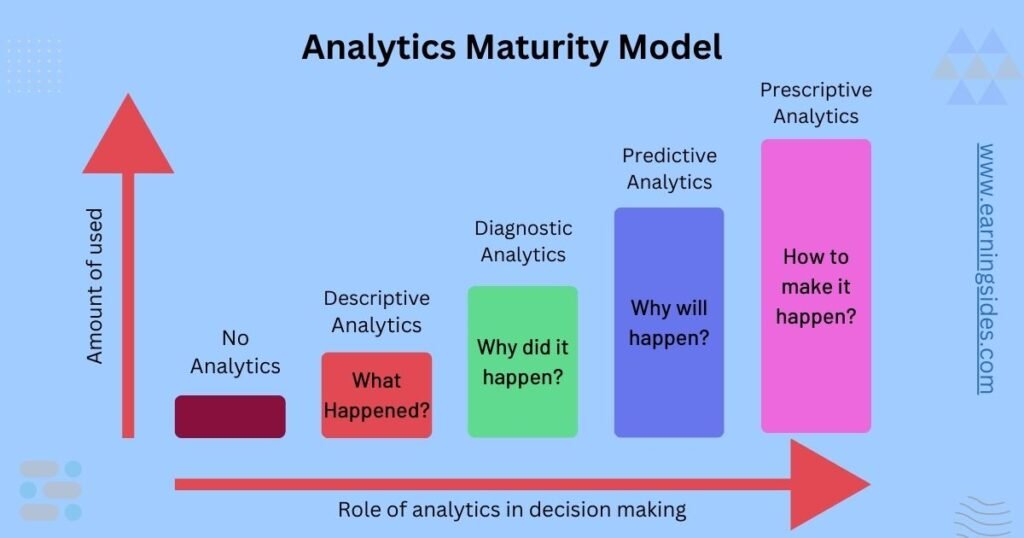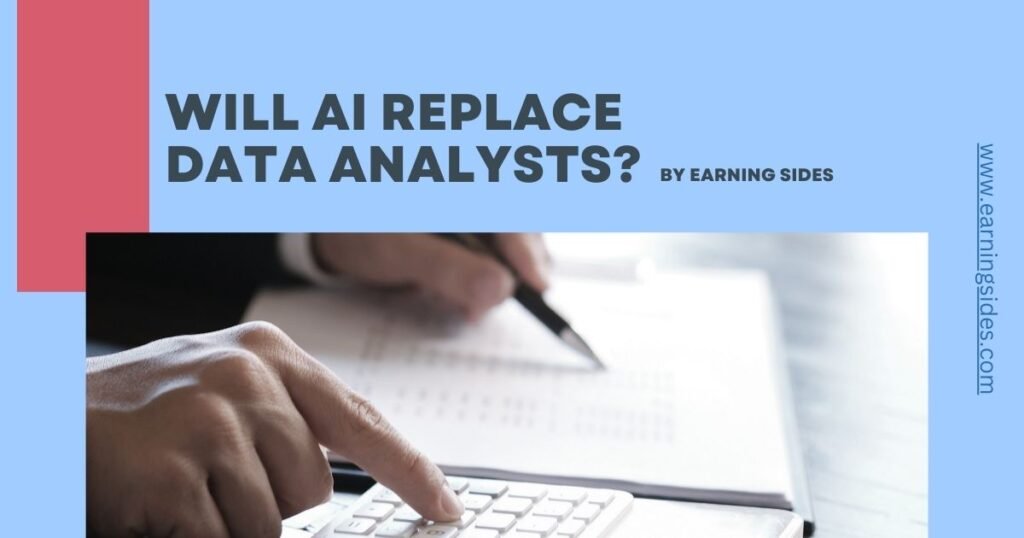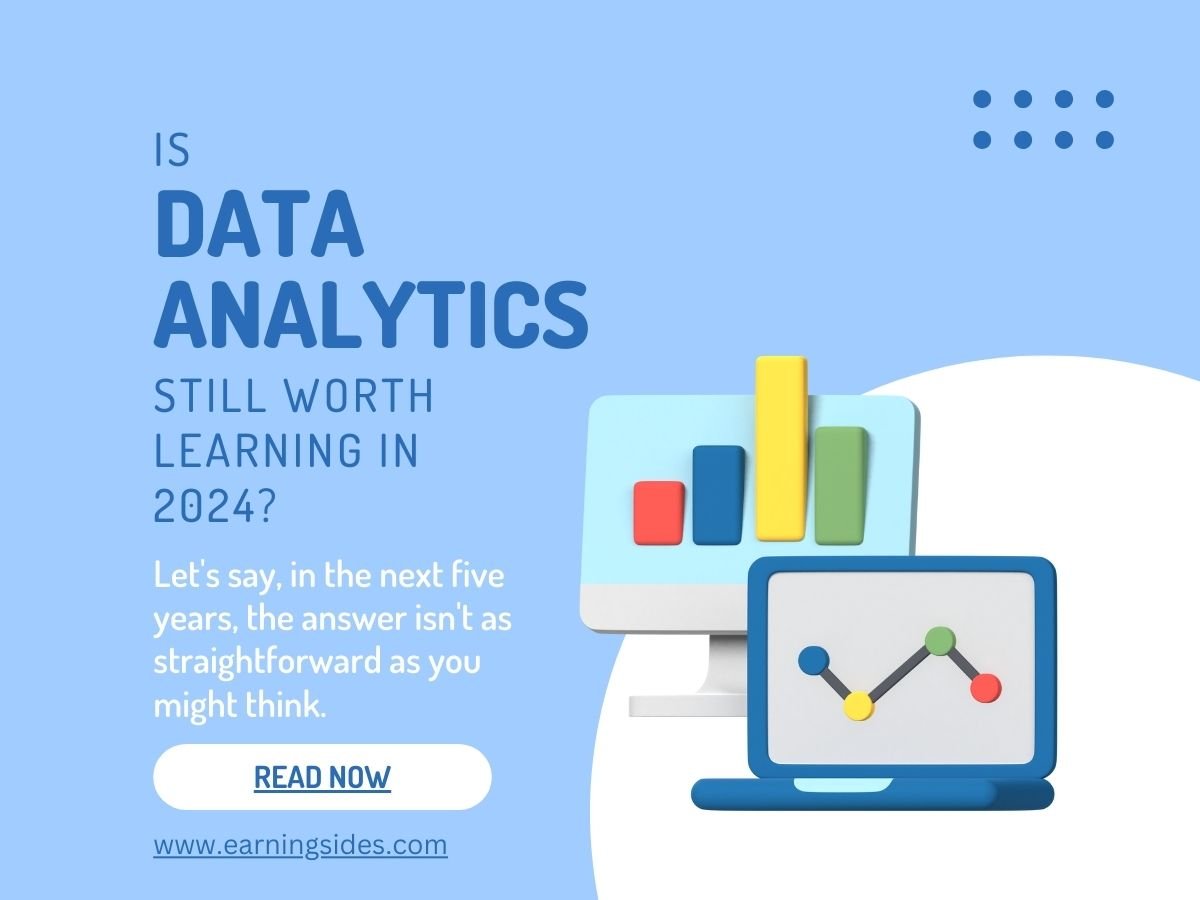Table of Contents
Introduction
In the late 70s, Harvard student Dan Bricklin was sitting in class bought out of his mind. Little did he know his daydream about the magic blackboard would give birth to digital spreadsheets, waving goodbyes to paper spreadsheets. This invention letter evolved into what we now know as Excel, the Swiss army knife of any dead analyst today, the software that has held the business world together in the past 40 years, one cell at a time.
Now fast forward to 2024, with AI coming into the picture this year, 2023 alone has seen GPT-4 and advanced data analysis. GitHub Copilot is adding loads of new features. AI assistant framework for self-operating computers, Microsoft AI, agents Microsoft Copilot Gemini, and many open-source models have come to life recently.
I’ve heard many of you express concerns and worries about the future of careers in data, analytics, and data science. Is data analytics still worth learning? Is it still a viable career? Let’s say, in the next five years, the answer isn’t as straightforward as you might think. I hope to share some thoughts and ideas with this article to help you decide.
AI: Reviving the Allure of Data Analytics
Looking back, I see that data analytics has come a long way since 2016, when I started my data analyst job. Very few people discuss advanced analysis, machine learning, or deep learning. Most companies were still struggling to determine what to do with data. You might have come across this data analytics maturity curve. Some companies are still struggling to understand what’s happening in the business.

Some are ahead and already have the infrastructure, the data, and everything, so they build predictive models. No matter where you work or live along this curve, an overwhelmingly everyday reality is that you’ve got to spend a big chunk of your time on anything else. Still, in data analysis, even in a machine learning project, you spend 7 to %80 of your time cleaning and pre-processing data and patching data from different sources together rather than doing creative data detector work.
That aside, when I finally finished some analysis and wanted to show some graphs, crafts often looked ugly. I would stay up late at night tweaking the labels and accessing the graphs. The rest of my time would be spent rushing to write documentation for the project, which is, by my means, the most tedious task. So, I realized that this was not as alluring as I thought. What does the job of data analysts or data scientists today look like? Help me clean this data set using the following step. With AI tools?
I genuinely believe this will give data science jobs a chance to be truly alluring. Imagine this AI does the groundwork and all the tedious tasks, and you, the savvy data analyst, tackle the creative, complex problems, interpret the results, and recommend actions for the business. Do you like the Sherlock Holmes of data? I don’t know about you, but this is what I would think of as a sexy job.
Will AI Replace Data Analysts?
Let’s discuss the elephant in the room: will AI replace data analysts? Can it fully automate our jobs? It’s not so black and white. Economists believe that automation does two opposite things simultaneously. It steals tasks from humans. While creating new functions for humans, and since the job is a collection of multiple tasks, automation eventually changes the task content of a job, as we just mentioned earlier, the repetitive and routine tasks like querying data cleaning and simple exploratory analysis.
This can quickly be done by GPT-4 so human analysts can focus on the more creative, nuanced tasks that require a deeper understanding of words and social skills. AI won’t fully replace analysts in the foreseeable future, but human analysts must learn to collaborate with AI to optimize their jobs. Just like the invention of the digital spreadsheet didn’t replace accountants. It transformed them since the release of Microsoft Excel, and the number of bookkeepers and accounting clerks has dropped significantly.
However, the number of accountants, auditors, and financial managers has generally increased, and giant accounting service firms like the Big Four are thriving rather than going bankrupt yesterday. That’s why I still get to keep my data, but let’s not paint an overly optimistic picture. The effect of AI automation on jobs is still not yet apparent. It all depends on whether the new tasks created space for the old ones or vice versa.

A research paper that studies the effects of technology on labour demand points out that in the four decades following World War II, there was plenty of automation. Still, the introduction of new tasks accompanied this. So, labour demand was not decreased due to technology. However, over the last 30 years, labour demand growth has slowed down. This is due to the consistent productivity growth. Thanks to rapid automation and AI, creating new tasks has not counterbalanced the last of labour-intensive tasks.
This is a fascinating research paper, and it surprised me. I’ve linked it here if you’re interested in reading. The question is, will this general pattern also apply to the data analyst jobs? I think it is less likely that there are millions of companies out there. I have never been able to utilize the data correctly, and I am still vying for analysts who can come in and use the data or a list. Figure out how to do that intelligently.
With AI, larger companies with the infrastructure to utilize data will still find it hard to automate data jobs, in my experience, any jobs around data. I am usually subject to many ethical issues, data sensitivity, and privacy issues. So many things are going on rather than just number-crunching. These topics will only become more critical and complex in the future. So I think, at least in the next three to five years, I don’t see how all these different aspects can easily be automated effectively with the AI tools we see today.
However, I do believe that we’ll see fewer jobs that only focus on:
- Number crunching
- Data cleaning
- Writing SQL queries
More jobs that require more high-level skills are coming up:
- The business, in the case of data
- Connecting different pieces of information from other sources
- Draw insights
- Drive actions for the business
- Knowledge of data regulations ensures your company does not get into trouble.
- Coordinating different analyses, efforts, and communication with stakeholders
- Tell a compelling story with data.
Importance of Domain Knowledge
This leads me to another point. The primary expertise will be significant. Data jobs are valuable not because we use fancy machine learning techniques or programming tools. But because of the business value they create, data analysis is nothing without context. Data analysis is just a means to an end. So, I genuinely believe that domain knowledge would help tremendously with finding your place in the job market or your current position, even when technical skills, like programming and data analysis, will be automated away.
So, if you are in the middle of a career unrelated to data analysis, I think this will be one of the best times to acquire data skills. I’ve met lawyers who jumped into learning about data privacy and AI regulations and became experts in this field. I’ve met GPs and doctors who became experts in using public health data to analyze and raise awareness in certain healthcare domains.
I’ve also met someone who works in a concrete production company and who created machine learning models to find the formula for the best concrete mix. So, it’s fascinating how valuable domain knowledge can be. So don’t take any work experience and expertise you have elsewhere for granted. Sometimes, it can be your best selling point for a career in data analytics today.
Easier Entry for Beginners or Mid-Career Transition
One problem you may face as a beginner is to learn all the basics of data science. You may also be a bit older, and returning to college is not an option anymore, but the world is very different today. AI is lowering the entry barrier for beginners in data science. Things that took years to learn in the past, at least in my case, for the basics of programming. Some machine learning and deep learning. Now, it takes much less time. Thanks to ChatGPT.
- Human: Hello there.
- ChatGPT: You might have a question or something to discuss.
- Human: Yes, I have a question. What is a lambda function in Python?
- ChatGPT: A lambda function in Python is a small anonymous function defined with the landing keyword. It helps create simple tasks on the fly without needing the usual keyboard and function name.

Not only are the fastest learner theories but also the AI tools can help you very quickly. Build a data analysis project for your portfolio. You can script the data faster, coat faster, solve problems faster, and present the results more nicely. So, it’s just generally much easier to create an impressive and exciting project. Nowadays, with AI’s help, a study showed that AI tools help. The least skilled and accomplished workers decrease the performance gap between employees.
So, in other words, the beginner data analyst will get much better, and the more seasoned analysts will get a little faster. If unsure of your level, you can quiz your skills with ChatGPT to understand what you are still missing. Today is challenging, and I no longer know where to begin. Also, it’s hard to find an excuse for having a bad resume if you can improve it or rewrite it using ChatGPT in 10 seconds.
So, all I know is I see a lot of opportunities for entry for beginners in data analytics, especially when the role of AI in a data analytics team today is not yet established. Companies are still fighting for ways to adopt the technology, and a playbook is not yet available. Regulations are not precise, and the AI tools are not yet grounded or reliable enough to replace human analysts fully.
Conclusion for Is Data Analytics Still Worth Learning
So, looking ahead to 2024, is learning data analytics deal with it? I’d say yes and still encourage you to get into data analytics. If you enjoy working with data and making a difference in the world with your skills, the jobs might look very different than they are today. The job will only become more attractive, like comparing today’s data analysis tools with the first spreadsheets.
The key to thriving in this career is adaptability, asking if it’s still worth it. It’s like asking if it’s still worth learning to drive when self-driving cars are around. The journey is half the fun, and the destination has limitless possibilities.
Thank you for reading today’s article about data analytics. I hope you find my content valuable. I wrote an article on artificial intelligence books titled “7 Most Interesting Books on Artificial Intelligence in 2024.” if you have not read it yet, click the title and read it now.
Below, I am also sharing some links to fantastic Data Analytics Books.
- The Hundred-Page Machine Learning Book By Andriy Burkov
- Too Big to Ignore: The Business Case for Big Data By Phil Simon
- Artificial Intelligence: A Guide for Thinking Humans By Melanie Mitchell
- The Quick Python Book By Naomi Ceder
- Developing Analytic Talent By Vincent Granville
- Data Analytics Made Accessible: 2024 edition By Anil Maheshwari
- Deep Medicine: How Artificial Intelligence Can Make Healthcare Human Again By Eric Topol
- Python Tricks: A Buffet of Awesome Python Features By Dan Bader
- Rebooting AI: Building Artificial Intelligence We Can Trust By Gary Marcus
Should I Still Learn Data Analytics?
I’d say yes and still encourage you to get into data analytics. If you enjoy working with data and making a difference in the world with your skills, the jobs might look very different than they are today. The job will only become more attractive, like comparing today’s data analysis tools with the first spreadsheets.











1 thought on “Is Data Analytics Still Worth Learning in 2024?”